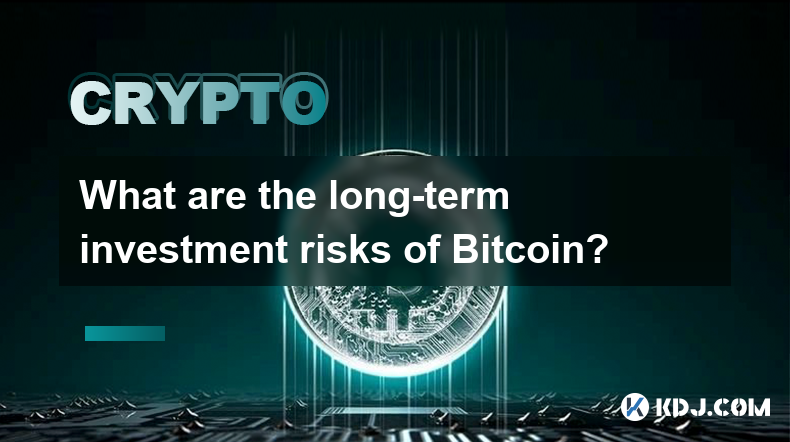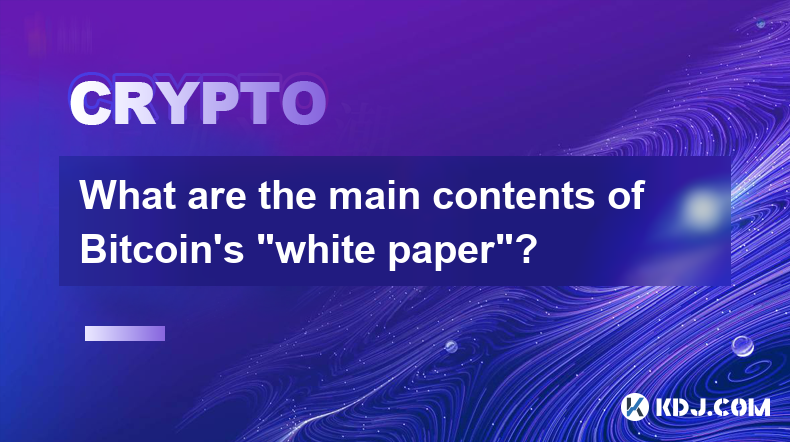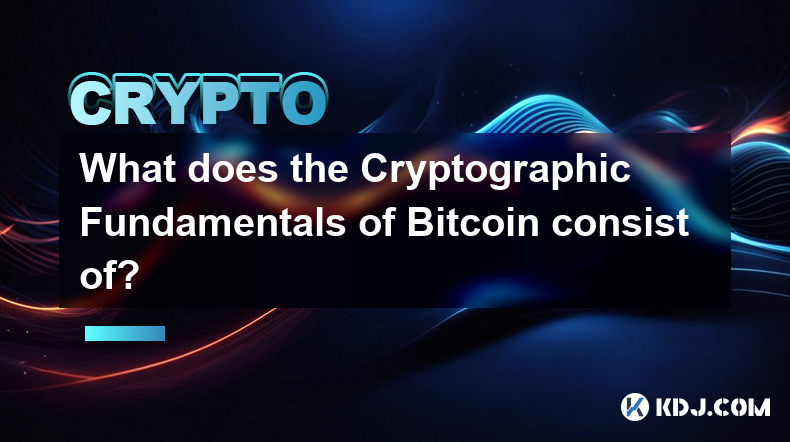-
 Bitcoin
Bitcoin $96,161.2493
-2.14% -
 Ethereum
Ethereum $2,686.5756
-2.45% -
 XRP
XRP $2.5719
-3.67% -
 Tether USDt
Tether USDt $0.9999
-0.04% -
 BNB
BNB $655.8976
-0.15% -
 Solana
Solana $171.9849
-2.65% -
 USDC
USDC $1.0001
0.00% -
 Dogecoin
Dogecoin $0.2435
-4.35% -
 Cardano
Cardano $0.7615
-4.97% -
 TRON
TRON $0.2379
-4.28% -
 Chainlink
Chainlink $17.4447
-5.17% -
 Avalanche
Avalanche $24.9624
-1.92% -
 Sui
Sui $3.3374
-3.85% -
 Stellar
Stellar $0.3266
-3.96% -
 Litecoin
Litecoin $127.2255
-5.17% -
 Toncoin
Toncoin $3.6609
1.73% -
 Shiba Inu
Shiba Inu $0.0...01526
-2.42% -
 UNUS SED LEO
UNUS SED LEO $9.7275
-0.32% -
 Hedera
Hedera $0.2145
-3.18% -
 Hyperliquid
Hyperliquid $24.2706
-2.62% -
 Polkadot
Polkadot $5.0883
0.29% -
 MANTRA
MANTRA $7.6370
0.37% -
 Bitcoin Cash
Bitcoin Cash $317.1514
-3.50% -
 Bitget Token
Bitget Token $5.0005
7.55% -
 Ethena USDe
Ethena USDe $0.9987
-0.10% -
 Dai
Dai $1.0000
-0.01% -
 Uniswap
Uniswap $8.8025
-5.45% -
 Monero
Monero $233.1225
-0.50% -
 NEAR Protocol
NEAR Protocol $3.4727
-2.15% -
 Pepe
Pepe $0.0...09302
-4.88%
How to store Polymath (POLY) coins?
When choosing a Polymath (POLY) wallet, prioritize security features like multi-factor authentication, encryption, and offline storage to safeguard your tokens.
Dec 28, 2024 at 02:53 am

Key Points
- Understand the different types of Polymath (POLY) wallets available.
- Consider the security features and accessibility of each wallet type.
- Choose a wallet that aligns with your specific storage needs.
- Store your private keys securely to maintain control of your POLY tokens.
- Monitor your wallet regularly to ensure the safety of your assets.
Step 1: Understanding Polymath (POLY) Wallets
Polymath (POLY) wallets are digital tools that allow you to store, send, and receive POLY tokens. There are two main types of wallets: hardware wallets and software wallets.
- Hardware wallets: These are physical devices that store your private keys offline, providing enhanced security. They are considered the safest option for storing large amounts of cryptocurrency. Popular hardware wallets include Ledger and Trezor.
- Software wallets: These are virtual wallets that run on your computer, smartphone, or web browser. They are more convenient and accessible than hardware wallets but may be less secure. Some popular software wallets for POLY include MetaMask, Trust Wallet, and Coinbase Wallet.
Step 2: Choosing a Polymath (POLY) Wallet
When selecting a POLY wallet, consider the following factors:
- Security: Look for wallets with strong security features, such as multi-factor authentication, encryption, and offline storage.
- Accessibility: Choose a wallet that is compatible with your devices and operating system.
- Features: Consider wallets that offer additional features, such as staking, trading, and portfolio management.
- Reputation: Do research on the reputation and track record of the wallet provider.
Step 3: Storing Your Private Keys
Your POLY private keys are the most critical aspect of your wallet. If you lose them, you may lose access to your funds. Therefore, it is crucial to store your private keys safely and securely.
- Write them down: Write down your private keys on a physical piece of paper and store it in a secure location.
- Use a password manager: Store your private keys in a reputable password manager that employs strong encryption.
- Split your private keys: Divide your private keys into smaller parts and store them in different locations.
Step 4: Monitoring Your Polymath (POLY) Wallet
Regularly monitor your POLY wallet to ensure the安全y of your assets.
- Check for updates: Keep your wallet software up to date to patch any security vulnerabilities.
- Review transactions: Examine your wallet history for any unauthorized transactions.
- Enable alerts: Set up notifications to stay informed about suspicious activity in your wallet.
FAQs
Q: What is the best Polymath (POLY) wallet?
A: The choice of the best wallet depends on your individual needs. Ledger hardware wallets are highly secure, while MetaMask software wallets are convenient and easy to use.
Q: How do I back up my Polymath (POLY) wallet?
A: Generate a recovery phrase or backup file and store it securely offline. This allows you to recover your wallet in case of loss or damage.
Q: How do I withdraw my POLY tokens from my wallet?
A: Navigate to the "Send" or "Withdraw" section of your wallet, enter the recipient's address, and specify the amount you wish to withdraw. Then, follow the on-screen instructions to confirm the transaction.
Disclaimer:info@kdj.com
The information provided is not trading advice. kdj.com does not assume any responsibility for any investments made based on the information provided in this article. Cryptocurrencies are highly volatile and it is highly recommended that you invest with caution after thorough research!
If you believe that the content used on this website infringes your copyright, please contact us immediately (info@kdj.com) and we will delete it promptly.
- Tether Launches TradeFi, a Blockchain-Based Financial Service Aimed at Optimizing International Trade
- 2025-02-22 17:00:25
- Altcoin Season Has Begun, Proclaims CryptoQuant CEO Ki Young Ju
- 2025-02-22 17:00:25
- Bybit Hack: Crypto Exchange Loses $1.4B in ETH, Market Cap Drops 1.86% to $3.17 Trillion
- 2025-02-22 17:00:25
- Ethereum (ETH), FTX Token (FTT), Coinbase, stETH, and Blur (BLUR) Are the Top 5 Most Attention-Grabbing Cryptocurrency-Related Keywords
- 2025-02-22 17:00:25
- Bybit Hack: Exchange Loses Over $1.1 Billion in Ethereum in One of the Biggest Security Breaches Ever
- 2025-02-22 17:00:25
- How to Build a Crypto Price Alert System Using CoinGecko and Python
- 2025-02-22 17:00:25
Related knowledge

What are the long-term investment risks of Bitcoin?
Feb 22,2025 at 05:30pm
Key PointsVolatility and price fluctuationsRegulatory uncertaintySecurity risksCompetition from altcoinsMarket manipulation and scamsTransaction feesEnvironmental concernsLong-Term Investment Risks of BitcoinVolatility and Price FluctuationsBitcoin's high volatility is a double-edged sword. While it has the potential to generate substantial returns, it ...

What are the main contents of Bitcoin's "white paper"?
Feb 21,2025 at 04:36am
Key Points:Understanding Bitcoin's Genesis: The White Paper's IntroductionA Decentralized Digital Currency: Bitcoin's Core ConceptBlockchain Technology: The Foundation of Bitcoin's Immutable LedgerProof-of-Work: Securing Bitcoin's NetworkThe Design of Bitcoin's Currency: Issuance, Scarcity, and DivisibilityBitcoin's Potential Applications and Future Pro...

What does the Cryptographic Fundamentals of Bitcoin consist of?
Feb 21,2025 at 12:06pm
Key PointsUnderstanding the cryptographic algorithms used in BitcoinFamiliarization with the Bitcoin blockchain and its underlying mechanicsExamination of the security measures that protect Bitcoin from attackAnalysis of the decentralized nature of Bitcoin and its implicationsDiscussion of the scalability and transaction fee issues associated with Bitco...

How do Bitcoin mining pools work?
Feb 21,2025 at 09:07pm
Key Points of Bitcoin Mining Pools:Understanding Bitcoin Mining PoolsSteps to Join a Bitcoin Mining PoolChoosing the Right Mining PoolBenefits and Considerations of Mining PoolsHow do Bitcoin mining pools work?Understanding Bitcoin Mining PoolsBitcoin mining pools are distributed networks of mining participants who combine their computing power to solve...

What role does Bitcoin's hash function play in the system?
Feb 21,2025 at 09:06am
Key PointsSecure Data Storage: The hash function safeguards data within Bitcoin's blockchain, ensuring its immutability and integrity.Transaction Verification: The hash function plays a crucial role in verifying transactions and maintaining the network's consensus.Security against Double-Spending: The hash function helps prevent double-spending by crypt...

What is the initial purchase and transaction process for Bitcoin?
Feb 20,2025 at 01:00pm
Key Points:Understanding the concept of BitcoinCreating a Bitcoin walletFunding your Bitcoin walletPurchasing Bitcoin through an exchangeConfirming and receiving BitcoinInitial Purchase and Transaction Process for Bitcoin1. Understanding BitcoinBitcoin is a decentralized digital currency created in 2009 by an unknown individual or group using the pseudo...

What are the long-term investment risks of Bitcoin?
Feb 22,2025 at 05:30pm
Key PointsVolatility and price fluctuationsRegulatory uncertaintySecurity risksCompetition from altcoinsMarket manipulation and scamsTransaction feesEnvironmental concernsLong-Term Investment Risks of BitcoinVolatility and Price FluctuationsBitcoin's high volatility is a double-edged sword. While it has the potential to generate substantial returns, it ...

What are the main contents of Bitcoin's "white paper"?
Feb 21,2025 at 04:36am
Key Points:Understanding Bitcoin's Genesis: The White Paper's IntroductionA Decentralized Digital Currency: Bitcoin's Core ConceptBlockchain Technology: The Foundation of Bitcoin's Immutable LedgerProof-of-Work: Securing Bitcoin's NetworkThe Design of Bitcoin's Currency: Issuance, Scarcity, and DivisibilityBitcoin's Potential Applications and Future Pro...

What does the Cryptographic Fundamentals of Bitcoin consist of?
Feb 21,2025 at 12:06pm
Key PointsUnderstanding the cryptographic algorithms used in BitcoinFamiliarization with the Bitcoin blockchain and its underlying mechanicsExamination of the security measures that protect Bitcoin from attackAnalysis of the decentralized nature of Bitcoin and its implicationsDiscussion of the scalability and transaction fee issues associated with Bitco...

How do Bitcoin mining pools work?
Feb 21,2025 at 09:07pm
Key Points of Bitcoin Mining Pools:Understanding Bitcoin Mining PoolsSteps to Join a Bitcoin Mining PoolChoosing the Right Mining PoolBenefits and Considerations of Mining PoolsHow do Bitcoin mining pools work?Understanding Bitcoin Mining PoolsBitcoin mining pools are distributed networks of mining participants who combine their computing power to solve...

What role does Bitcoin's hash function play in the system?
Feb 21,2025 at 09:06am
Key PointsSecure Data Storage: The hash function safeguards data within Bitcoin's blockchain, ensuring its immutability and integrity.Transaction Verification: The hash function plays a crucial role in verifying transactions and maintaining the network's consensus.Security against Double-Spending: The hash function helps prevent double-spending by crypt...

What is the initial purchase and transaction process for Bitcoin?
Feb 20,2025 at 01:00pm
Key Points:Understanding the concept of BitcoinCreating a Bitcoin walletFunding your Bitcoin walletPurchasing Bitcoin through an exchangeConfirming and receiving BitcoinInitial Purchase and Transaction Process for Bitcoin1. Understanding BitcoinBitcoin is a decentralized digital currency created in 2009 by an unknown individual or group using the pseudo...
See all articles

















![BONK The Meme Coin MORE THAN ORDINARY [DOG] on Solana BONK The Meme Coin MORE THAN ORDINARY [DOG] on Solana](/uploads/2025/02/22/cryptocurrencies-news/videos/bonk-meme-coin-ordinary-dog-solana/image-1.jpg)


































































